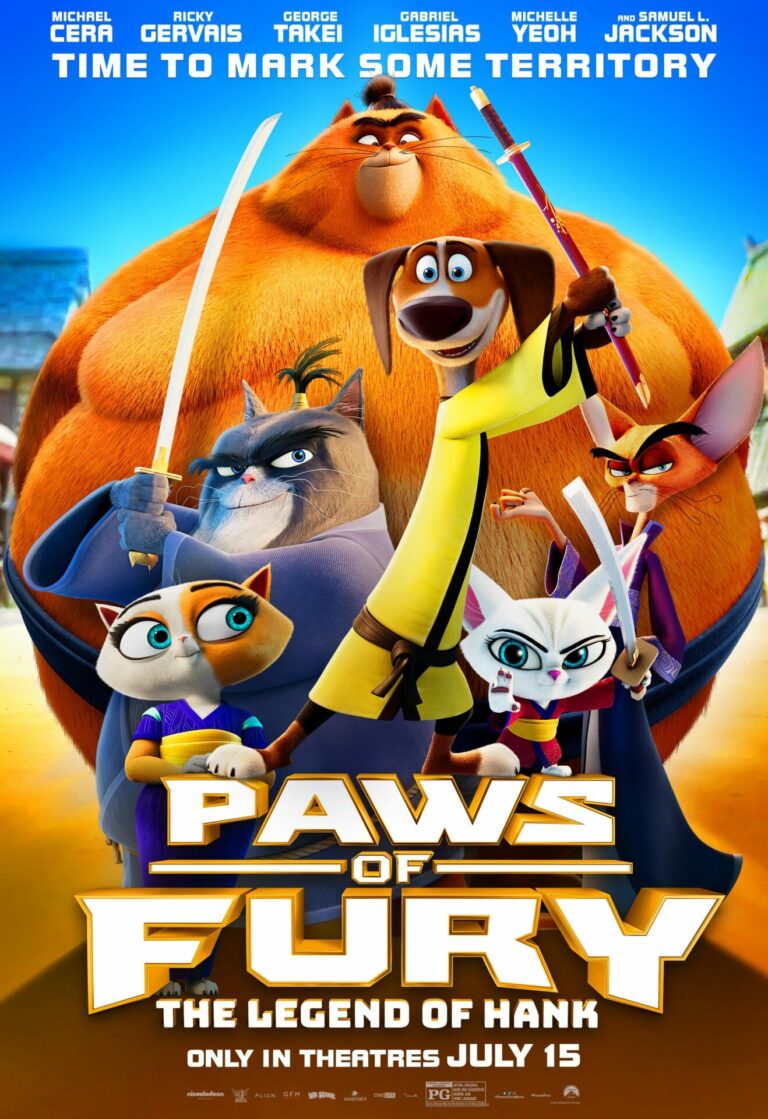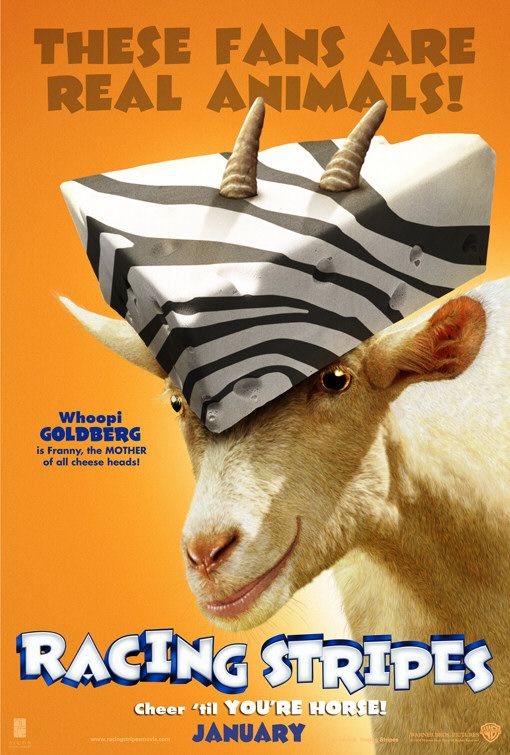“Racing on the Animal Farm”

| None | Light | Moderate | Heavy | |
|---|---|---|---|---|
| Language | ||||
| Violence | ||||
| Sex | ||||
| Nudity |
What You Need To Know:
RACING STRIPES bounds through a list of warm and fuzzy values but offers no solid moral teaching. The ideas are positive, but the hodgepodge comes off as a little forced and too preachy. There is some rude language and lots of scatological humor, but families can watch the movie together mostly without fear of being overly embarrassed. The formulaic plot and heavy-handed lessons make it entertaining only for very young children who will see the talking animals as a novelty.
Content:
(B, L, V, M) Light moral worldview that encourages accomplishing goals, overcoming fears, accepting people who are different, and several other fuzzy values; some rude language, including scatological humor, and competitive insults like “I’m gonna kick your butt”; slapstick comedy among animals, including a bird who repeatedly defecates on other animals; and, gambling on horse racing, child disobeys her father, mean horses kidnap a nice horse, bird talks about his past with the Mafia, and animal jokes: “I hate my life.”
More Detail:
While Stripes is learning who he is and working to accomplish his goals, his owners – Nolan Walsh and Nolan’s daughter, Channing Walsh – are coping with the death of Mrs. Walsh. Nolan is afraid to let Channing ride a horse, because his wife was a jockey and died in a horseracing accident. Stripes pulls the father and daughter together, and both learn to get over their pain and fears.
Without one major point to drive home, RACING STRIPES bounds through a litany of well-intentioned, if not incredibly meaningful, warm and fuzzy values. Children are told to accept those who are different, that hard work accomplishes goals, that it’s okay to be themselves, to overcome fears, that “it’s what’s on the inside that counts.” All of these ideas are positive, but the moral hodgepodge comes off as a little too earnest and preachy.
Other messages which are less overt include the human daughter disobeying her father and a lot of crude jokes, mostly about “poop.”
The focus shifts to the humans after the 30-minute mark, and the wise-cracking animals are almost forgotten. Even if they learn a good lesson in the end, the story about the father and daughter is not fun because the girl’s mother has just died, and there is an air of sadness over their relationship. The filmmakers would have been smart to keep the animals on screen more. Even Stripes has a dark side to his story at one point, further weighing down the movie.
Whoopie Goldberg and Dustin Hoffman are the voices of the old goat and horse. Their scenes are the most engaging and most often funny. Comic relief is supposed to come from two flies voiced by Steve Harvey and David Spade, but their interactions are forced, not funny, and drew no reaction from children in the crowd.
Except for the scatological humor, families can watch RACING STRIPES together without fear of being overly embarrassed. The formulaic plot and heavy-handed lessons make it entertaining only for very young children who will see the talking animals as a novelty.


 - Content:
- Content: 





